The End of Work: Will AGI Make Jobs Obsolete?
What if your job was no longer yours—not because you got fired, but because a machine could do it better, faster, and cheaper? This isn’t utopia or dystopia far far into the future. It’s the reality we’re hurtling toward as Artificial General Intelligence (AGI) evolves. AGI, the kind of AI that can think, learn, and adapt like a human, is no longer a distant dream. It’s knocking on our door, and it’s about to change everything.
Think about it: machines that can write novels, diagnose diseases, manage companies, and even create art. Sounds impressive, right? But what happens when these machines start doing all the jobs we thought only humans could do? The implications are staggering. From lawyers to doctors, from musicians to managers, no profession is safe. The question isn’t *if* AGI will disrupt the workforce—it’s *when*.
This isn’t just about losing jobs. It’s about redefining what it means to work, to contribute, and to live a meaningful life. Visionaries like Yuval Noah Harari, author of *Sapiens*, have warned about the societal upheaval AI could bring. Elon Musk, the tech mogul behind Tesla and SpaceX, has called AGI “the biggest existential threat” to humanity. Even Stephen Hawking cautioned that AI could be “the best or worst thing to happen to humanity.”
So, what’s the plan? How do we prepare for a world where AGI makes traditional jobs obsolete? This article dives into the rise of AGI, the collapse of work as we know it, and the radical solutions we’ll need to survive—and thrive—in this brave new world.
1. The Rise of AGI: A New Era of Intelligence
1.1 What is AGI?
AGI, or Artificial General Intelligence, is the next big leap in AI. Unlike the AI we’re used to—like Siri or Alexa, which can only do specific tasks—AGI can think, learn, and adapt across a wide range of activities. Imagine a machine that can write a symphony, diagnose a rare disease, and manage a Fortune 500 company—all in the same day. That’s AGI.
Think of it this way: if today’s AI is a calculator, AGI is a full-blown mathematician. It doesn’t just follow instructions; it understands context, solves problems, and even comes up with creative solutions. Companies like OpenAI and DeepMind are at the forefront of this revolution, pushing the boundaries of what machines can do.
1.2 The Acceleration of AGI Development
The progress in AGI has been nothing short of explosive. Just a decade ago, AI struggled to recognize faces in photos. Now, it’s beating world champions at games like Go, a game so complex it was thought to be beyond machines. OpenAI’s GPT-4 can write essays, code software, and even mimic human conversation with eerie accuracy.
Experts predict AGI could be here within the next 20 to 50 years. Some, like Ray Kurzweil, a futurist and Google’s Director of Engineering, believe it could happen even sooner. The question isn’t whether AGI will arrive—it’s how we’ll handle it when it does.
1.3 Implications for the Workforce
When AGI arrives, it won’t just replace manual labor. It’s coming for the jobs we thought were untouchable. Lawyers? AGI can draft contracts and argue cases. Doctors? It can diagnose diseases and recommend treatments. Even creative roles like writers, artists, and musicians aren’t safe. AI-generated art is already winning competitions, and AI-written novels are hitting the shelves.
But it’s not all doom and gloom. AGI could also create new opportunities—jobs we can’t even imagine yet. The key is to adapt. As Andrew Yang, the 2020 presidential candidate and advocate for Universal Basic Income, puts it: “The robots are coming. We need to prepare.”
2. The Collapse of Traditional Employment
2.1 Economic Disruption
Picture this: you wake up one morning, grab your coffee, and log into your work computer—only to find out your job has been outsourced to an AI. Sounds like a bad dream, right? But for millions, this could soon be reality. As AGI becomes more capable, entire industries could collapse overnight. White-collar jobs, once considered the gold standard of job security, are now on the chopping block. Lawyers, doctors, accountants, and even CEOs could find themselves replaced by algorithms that work faster, cheaper, and without coffee breaks.
The economic fallout would be staggering. Mass unemployment could lead to a domino effect: fewer jobs mean less consumer spending, which means businesses struggle, which means even more layoffs. It’s a vicious cycle that could make the Great Depression look like a mild hiccup. And let’s not forget the widening wealth gap. If AGI is controlled by a handful of tech giants like Google or OpenAI, the rich could get richer while the rest of us are left scrambling for scraps.
2.2 Psychological and Social Impact
Losing your job isn’t just about losing a paycheck—it’s about losing a piece of your identity. For many, work is more than just a way to pay the bills; it’s a source of purpose, pride, and social connection. Take that away, and you’re left with a society of people who feel lost, undervalued, and, frankly, pretty bored. Imagine a world where everyone’s stuck at home, binge-watching Netflix because there’s nothing else to do. Sounds fun for a weekend, but a lifetime? Not so much.
And then there’s the social unrest. History has shown us that high unemployment often leads to political instability. The French Revolution, the Arab Spring, and even the rise of populism in recent years all have one thing in common: a lot of unhappy, unemployed people. If AGI leads to mass joblessness, we could see protests, riots, and maybe even revolutions. Not exactly the utopia we were promised, huh?
2.3 Case Studies
Let’s take a trip down memory lane. The Industrial Revolution was a game-changer, right? It brought us factories, steam engines, and a whole lot of progress. But it also brought chaos. Millions of workers were displaced, and it took decades for society to adjust. Fast forward to today, and we’re seeing similar patterns with the gig economy. Companies like Uber and Lyft have created millions of jobs, but they’re often low-paying, unstable, and lacking in benefits. Sound familiar?
Now imagine that on steroids. AGI could make the gig economy look like a walk in the park. The question is: will we learn from history, or are we doomed to repeat it?
3. Rethinking Work: A Post-Labor Society
3.1 Universal Basic Income (UBI)
So, what’s the solution? One idea that’s been gaining traction is Universal Basic Income (UBI). The concept is simple: give everyone a regular, unconditional sum of money to cover their basic needs. No strings attached. Sounds like a socialist fantasy, right? But hear me out. UBI could be the safety net we need in a world where jobs are scarce. It could give people the freedom to pursue their passions, start businesses, or just take a break without worrying about how to pay the rent.
Of course, UBI isn’t without its critics. Some worry it could disincentivize work, turning us into a society of couch potatoes. But studies from places like Stanford University and MIT have shown that UBI can actually boost productivity and creativity. Plus, let’s be real: if AGI is doing all the work, do we really need to worry about people being lazy?
3.2 The Role of Education and Reskilling
Another key to surviving the AGI revolution is education. But not the kind of education we’re used to. In a world where jobs are constantly changing, we need to embrace lifelong learning. Think of it like updating your phone’s operating system—except instead of fixing bugs, you’re learning new skills to stay relevant.
AI-powered education platforms could be a game-changer here. Imagine a personalized tutor that knows exactly what you need to learn and how to teach it to you. Companies like Khan Academy and Coursera are already leading the charge, but the possibilities are endless. And let’s not forget about new industries. As AGI takes over traditional jobs, there will be a growing demand for roles in AI maintenance, ethics, and oversight. Who knows? You might just find your dream job in a field that doesn’t even exist yet.
3.3 Redefining Success
Finally, we need to rethink what it means to be successful. For too long, we’ve measured progress in terms of GDP and job growth. But in a post-work society, those metrics won’t make much sense. Instead, we should focus on well-being, sustainability, and community. Imagine a world where people are free to pursue art, culture, and spirituality without the pressure of a 9-to-5 grind. Sounds pretty nice, doesn’t it?
Of course, this won’t happen overnight. It’ll take a shift in mindset, policy changes, and a whole lot of collaboration. But if we can pull it off, the future could be brighter than we ever imagined. So, what do you think? Are you ready to embrace a post-work world, or are you holding onto your job for dear life? Let’s hear your thoughts in the comments!
4. Income Distribution in an AGI-Driven Economy
Imagine a world where AGI runs the economy. Sounds like a sci-fi movie, right? But it’s closer than you think. The question isn’t just how AGI will change work—it’s how we’ll share the wealth it creates. If AGI can do everything better, faster, and cheaper, who gets the benefits? And who gets left behind? Let’s dive into the messy, fascinating world of income distribution in an AGI-driven economy.
4.1 Wealth Redistribution Mechanisms
AGI could make some people insanely rich while leaving others with nothing. To avoid this, we need smart ways to share the wealth. Here are a few ideas:
- Taxation of AI-driven profits: Companies making billions from AGI could pay higher taxes. These funds could go into public services like healthcare, education, and infrastructure. Think of it as a “robot tax.”
- Public ownership of AGI: What if AGI was treated like a public utility, like water or electricity? Governments could own and operate AGI systems, ensuring everyone benefits equally.
- Universal Basic Income (UBI): A regular paycheck for everyone, no strings attached. UBI could help people survive in a world where jobs are scarce. Countries like Finland have already tested UBI with promising results.
But these ideas aren’t perfect. Taxing AGI profits might discourage innovation. Public ownership could lead to inefficiency. And UBI? Critics say it could make people lazy. Still, these mechanisms are worth exploring.
4.2 The Role of Governments and Corporations
Governments and corporations will play a huge role in shaping the AGI economy. Here’s how they could step up:
- Policy frameworks: Governments need to create rules to prevent AGI monopolies. Imagine if one company controlled all the AGI systems—scary, right? Regulations could ensure fair competition and access.
- Corporate responsibility: Companies developing AGI must follow ethical guidelines. For example, OpenAI has committed to using AI for the public good. More companies should follow suit.
But let’s be real: governments and corporations don’t always play nice. Corruption, greed, and bureaucracy could get in the way. That’s why we need strong oversight and public pressure to keep them accountable.
4.3 Global Cooperation
AGI isn’t just a national issue—it’s a global one. If one country develops AGI first, it could dominate the world economy. To prevent this, we need international cooperation. Here’s how:
- International agreements: Countries could sign treaties to share AGI technology and profits. Think of it like the United Nations, but for AGI.
- Addressing inequality: Developing nations must benefit from AGI advancements. Otherwise, the gap between rich and poor countries will only grow. Programs like World Bank initiatives could help bridge this gap.
Global cooperation won’t be easy. Countries compete for power and resources. But if we don’t work together, the AGI revolution could leave billions behind.
5. Ethical and Philosophical Considerations
AGI isn’t just about money and jobs—it’s about what it means to be human. As AGI becomes smarter, we’ll face tough ethical and philosophical questions. Let’s explore some of the biggest ones.
5.1 The Moral Implications of AGI
Should AGI systems have rights? If an AGI can think, feel, and create, does it deserve the same protections as a human? This isn’t just a theoretical question. Some experts, like those at the Future of Life Institute, are already debating it.
Then there’s accountability. If an AGI makes a mistake—say, causing a financial crash or a medical error—who’s responsible? The developers? The company? The AGI itself? These questions will shape the future of law and ethics.
5.2 The Future of Human Agency
AGI could make life easier, but at what cost? If we rely on AGI for everything, do we lose our autonomy? Imagine a world where AGI decides what job you get, where you live, even who you marry. Sounds like a dystopia, right?
But it’s not all doom and gloom. AGI could also empower us. For example, it could help us make better decisions, solve global problems, and explore new frontiers. The key is finding the right balance between human control and AI assistance.
5.3 Cultural Shifts
In a post-work world, how will we find meaning? Work isn’t just about money—it’s about purpose, identity, and connection. Without jobs, we’ll need new ways to feel fulfilled.
- Redefining leisure: Instead of working 9-to-5, we could spend our time on art, hobbies, and community projects. Imagine a world where everyone has the freedom to pursue their passions.
- The role of art and spirituality: AGI could take over many tasks, but it can’t replace human creativity and spirituality. These could become even more important in a post-work society.
But let’s not sugarcoat it: this transition won’t be easy. It will require a massive cultural shift. We’ll need to rethink everything from education to social norms. But if we get it right, the future could be brighter than ever.
6. AI Solutions: How Would AI Tackle This Issue?
If AGI is the problem, could it also be the solution? Here’s how AI could address the societal upheaval it creates:
6.1 AI-Driven Economic Models
AGI could revolutionize economic systems by simulating and optimizing resource distribution. Imagine an AI that predicts market fluctuations, identifies inefficiencies, and redistributes wealth in real-time. Companies like DeepMind are already using AI to solve complex problems, from protein folding to energy efficiency. Why not apply similar models to global economics? AGI could design systems where Universal Basic Income (UBI) is dynamically adjusted based on real-time data, ensuring no one falls through the cracks.
6.2 Personalized Education Platforms
Reskilling the workforce will be critical. AI-powered platforms like Coursera and Khan Academy are already democratizing education. But AGI could take this further by creating hyper-personalized learning experiences. Imagine a virtual tutor that adapts to your learning style, pace, and interests, using immersive technologies like VR and AR to teach everything from coding to carpentry. This isn’t just about job training—it’s about empowering individuals to thrive in a post-work world.
6.3 Decentralized Governance
Blockchain technology, combined with AI, could enable transparent and equitable governance. Projects like Ethereum are already exploring decentralized decision-making. AGI could facilitate participatory governance, where citizens vote on policies directly through secure, AI-monitored platforms. This would reduce corruption, increase accountability, and ensure that AGI benefits everyone, not just a privileged few.
6.4 Universal Basic Income (UBI) Pilots
UBI is often dismissed as utopian, but AI could make it practical. By analyzing data from UBI experiments worldwide—like those in Finland and Stockholm—AGI could identify best practices and scale solutions. Digital currencies and smart contracts could automate UBI distribution, ensuring timely and transparent payments. This isn’t just about survival; it’s about giving people the freedom to pursue their passions.
6.5 Ethical Oversight Frameworks
AGI must be developed responsibly. Organizations like the Partnership on AI are already working on ethical guidelines. But AGI could take this further by creating self-regulating systems that monitor and enforce these guidelines. Imagine a global AI ethics council, powered by AGI, that ensures fairness, transparency, and accountability in AI development and deployment.
6.6 Action Schedule/Roadmap (Day 1 to Year 2)
Here’s a detailed roadmap for implementing these solutions:
- Day 1: Assemble a global task force of AI researchers, economists, policymakers, and ethicists. Include representatives from organizations like OpenAI, United Nations, and World Bank.
- Week 1: Launch a series of public forums to gather input on AGI’s societal impact. Use platforms like Reddit and Facebook to engage a global audience.
- Month 1: Begin pilot programs for AI-driven economic models and UBI in select regions. Partner with governments and NGOs to ensure inclusivity.
- Year 1: Establish international agreements on AGI development and wealth redistribution. Use blockchain technology to create transparent and enforceable treaties.
- Year 1.5: Roll out AI-powered education platforms globally, focusing on reskilling. Collaborate with edtech companies like Udacity and edX to ensure accessibility.
- Year 2: Implement decentralized governance systems and ethical oversight frameworks. Use AGI to monitor compliance and ensure equitable outcomes.
Embracing the Future: A World Beyond Work
The end of work as we know it is not a dystopia but an opportunity—a chance to redefine what it means to live a meaningful life. By harnessing the power of AGI, we can create a society where humans are free to pursue creativity, connection, and purpose. The road ahead is challenging, but with foresight and collaboration, we can ensure a future that benefits all.
Imagine a world where your value isn’t tied to your job title or salary. A world where you can spend your days painting, writing, or exploring the cosmos. A world where AGI handles the mundane, leaving us to dream, create, and connect. This isn’t just a pipe dream; it’s a possibility within our grasp.
But it won’t happen by accident. It will require bold leadership, innovative thinking, and global cooperation. It will require us to rethink our assumptions about work, success, and human potential. And it will require us to embrace the unknown, trusting that AGI can be a force for good.
So, what will you do in a post-work world? Will you write the next great novel, compose a symphony, or build a community garden? The future is yours to shape. Let’s make it extraordinary.
What are your thoughts on a post-work society? How do you envision your role in it? Share your ideas in the comments below, and don’t forget to subscribe to our newsletter for more insights into the future of technology and society. Together, we can build a brighter tomorrow.
FAQ
1. What is AGI?
AGI, or Artificial General Intelligence, refers to AI systems that can think and learn like humans. Unlike today's AI, which is good at specific tasks (like recognizing faces or translating languages), AGI can handle any intellectual job a human can do. Imagine a machine that can write a novel, diagnose a disease, or even manage a company—AGI is that machine.
2. How soon will AGI replace jobs?
Experts predict AGI could become a reality in the next 20 to 50 years. However, how quickly it replaces jobs depends on how fast the technology advances and how society adapts. For example, companies like OpenAI and DeepMind are already making huge strides in AI development. But don’t panic—there’s still time to prepare and rethink how we work.
3. What is Universal Basic Income (UBI)?
UBI is a system where everyone gets a regular amount of money from the government, no strings attached. The idea is to make sure people can afford basic needs like food, housing, and healthcare, even if they lose their jobs to automation. Places like Finland and Canada have already tested UBI, and the results are promising. It’s not a perfect solution, but it could help ease the transition to a post-work world.
4. Can AI solve the problems it creates?
Yes, AI can actually help fix some of the problems it causes. For example:
- Economic Models: AI can simulate and optimize how wealth is distributed, making sure everyone gets a fair share.
- Education: AI-powered platforms can help people learn new skills quickly, so they’re ready for new kinds of jobs.
- Ethical Oversight: AI can monitor itself to make sure it’s being used responsibly and ethically.
Organizations like the United Nations are already exploring how AI can be used for global good.
5. What can individuals do to prepare for a post-work world?
Here are a few steps you can take to get ready:
- Lifelong Learning: Stay curious and keep learning new skills. Platforms like Coursera and Udemy offer tons of courses to help you stay ahead.
- Explore Creativity: Focus on hobbies and passions that machines can’t easily replicate, like art, music, or community building.
- Stay Informed: Follow organizations like the World Economic Forum to stay updated on how AI is changing the world.
6. Will AGI take over creative jobs too?
Yes, even creative jobs aren’t safe. AI tools like MidJourney can create stunning artwork, and DALL-E can generate images from text descriptions. Musicians are already using AI to compose music, and writers are experimenting with AI-generated stories. But don’t worry—human creativity will always have a unique spark that machines can’t replicate.
7. What happens to people who can’t adapt to a post-work world?
This is a big concern. If AGI takes over most jobs, some people might struggle to find new ways to contribute. That’s why ideas like UBI and free education are so important. Governments and organizations will need to step up to make sure no one is left behind. For example, the World Bank is already working on programs to help people in developing countries adapt to technological changes.
8. Will AGI have rights like humans?
This is a tricky question. Some people think AGI should have rights, especially if it becomes as intelligent and self-aware as humans. Others worry that giving machines rights could lead to ethical dilemmas. For now, organizations like the AAAI are working on guidelines to ensure AGI is developed responsibly.
9. How can we make sure AGI benefits everyone?
Global cooperation is key. Countries, companies, and organizations need to work together to make sure AGI is used for good. For example, the United Nations could create international agreements to prevent AGI from being misused. Companies like Microsoft and Google are already setting ethical guidelines for AI development.
10. What’s the biggest risk of AGI?
The biggest risk is that AGI could become too powerful and act in ways we don’t expect or can’t control. This is called the “alignment problem”—making sure AGI’s goals align with human values. Researchers at places like Oxford University and MIT are working hard to solve this problem before AGI becomes a reality.
Wait! There's more...check out our gripping short story that continues the journey: Sommeil
Disclaimer: This article may contain affiliate links. If you click on these links and make a purchase, we may receive a commission at no additional cost to you. Our recommendations and reviews are always independent and objective, aiming to provide you with the best information and resources.
Get Exclusive Stories, Photos, Art & Offers - Subscribe Today!

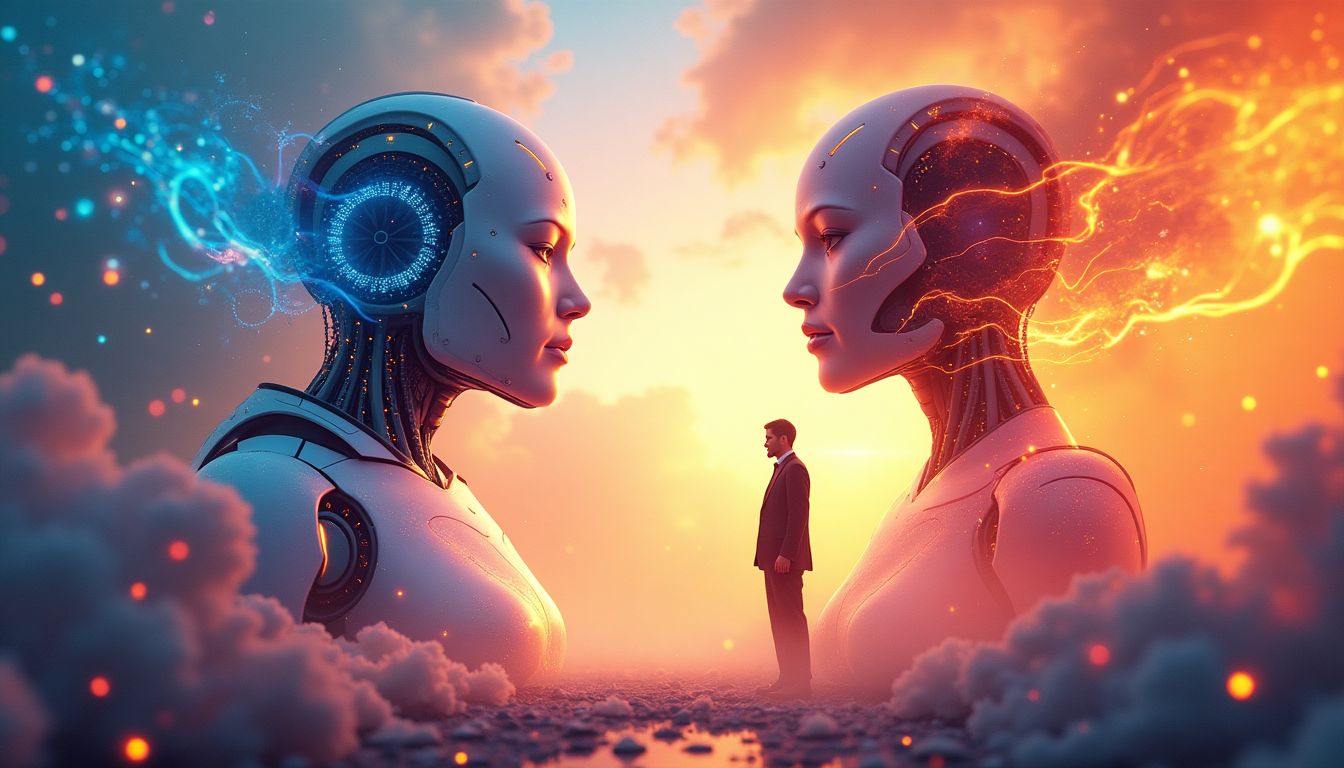
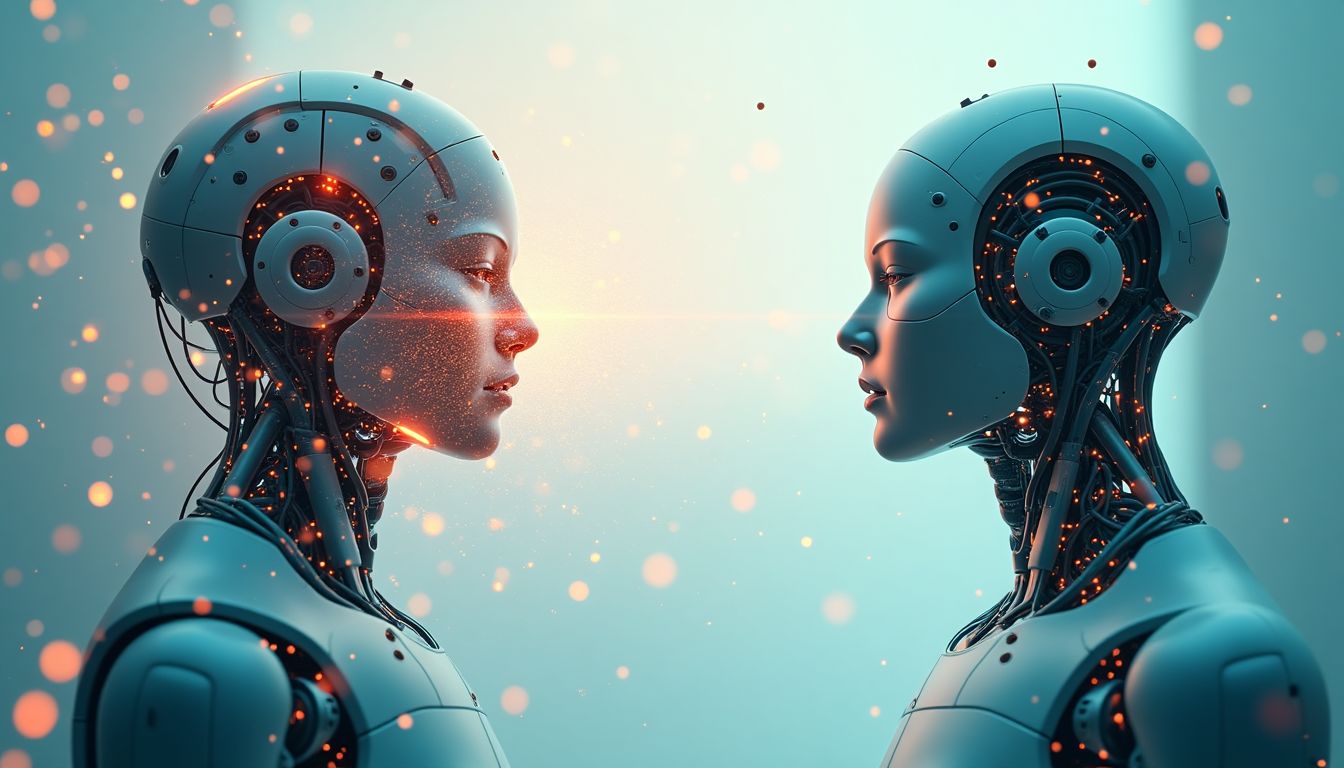
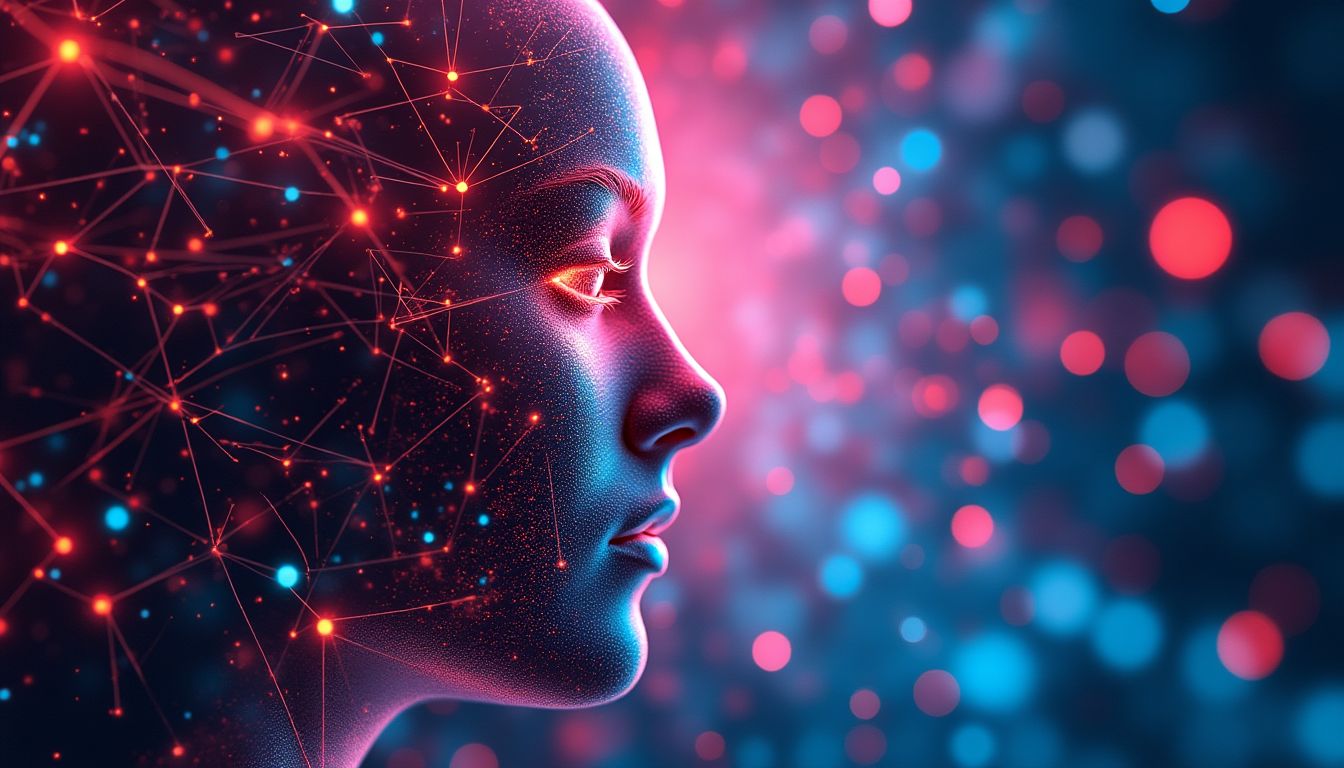







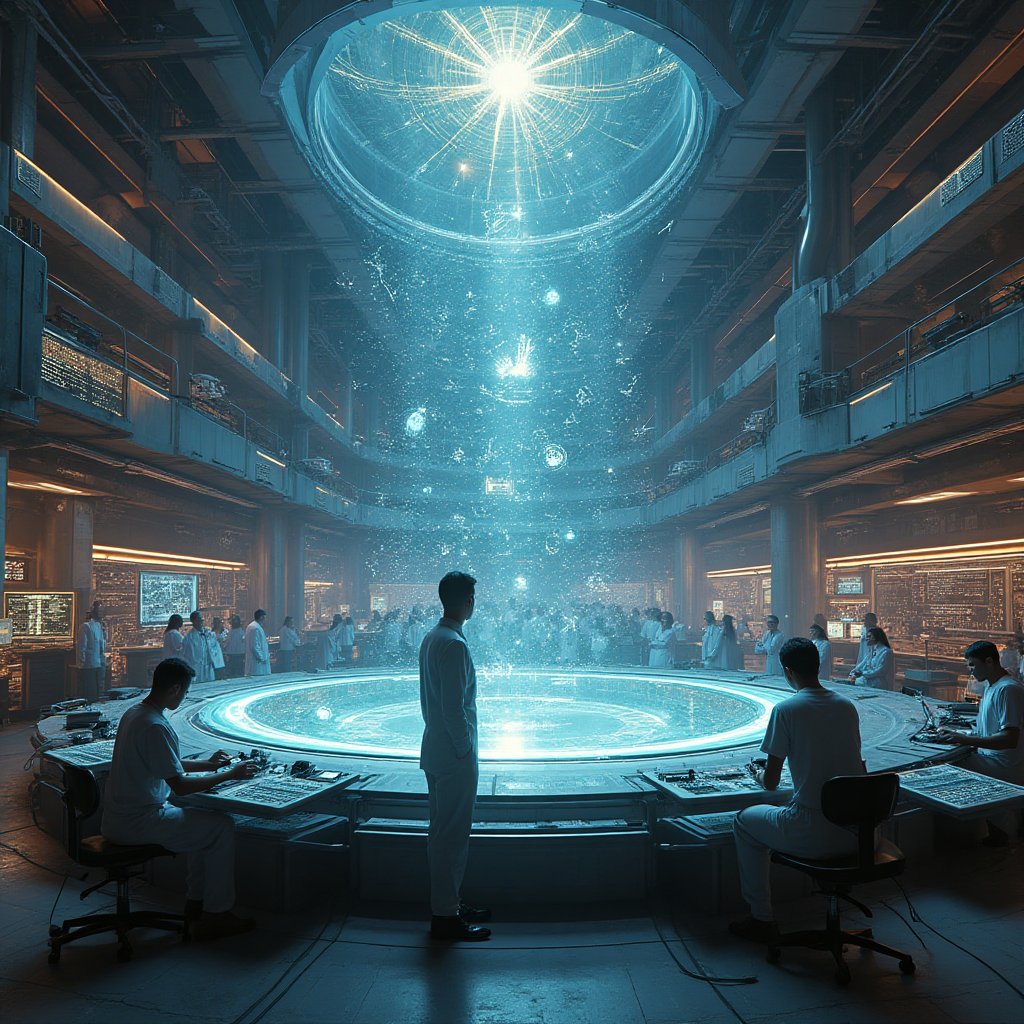

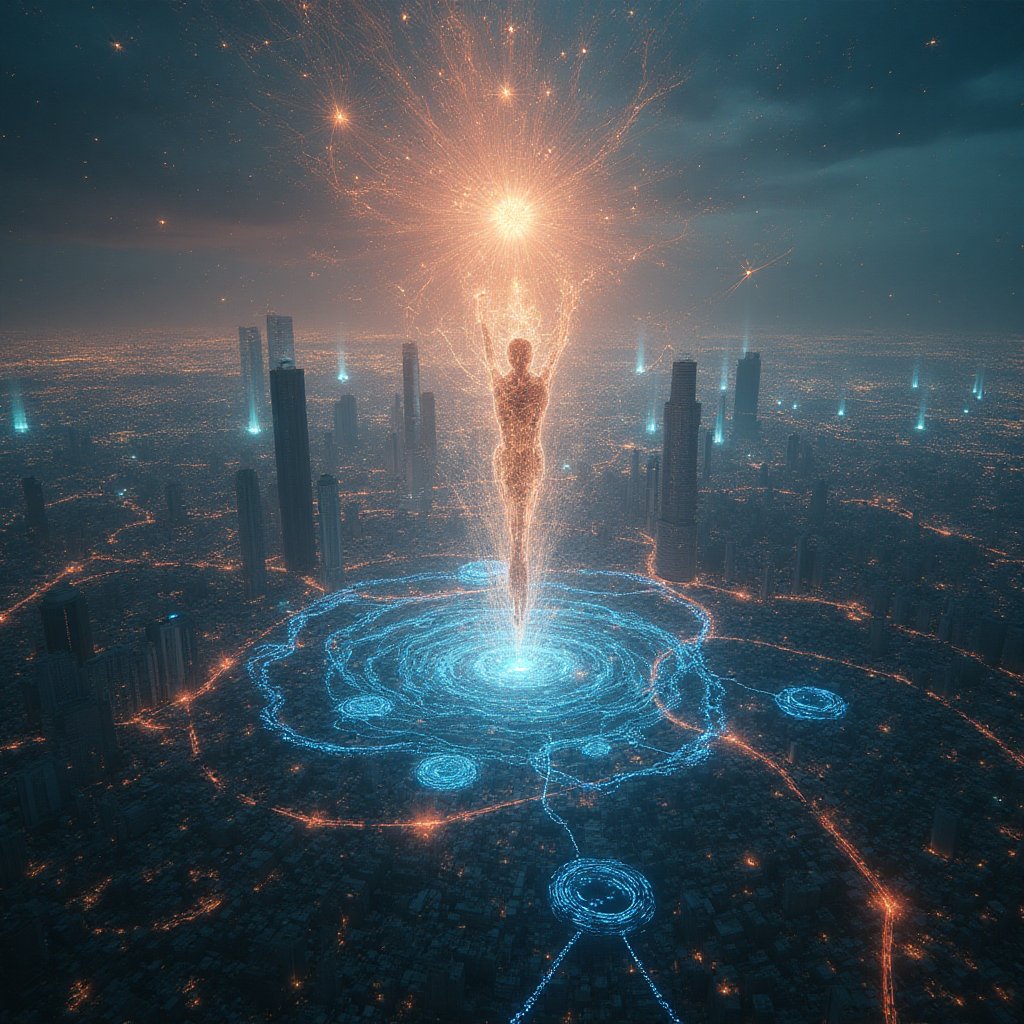















1 comment